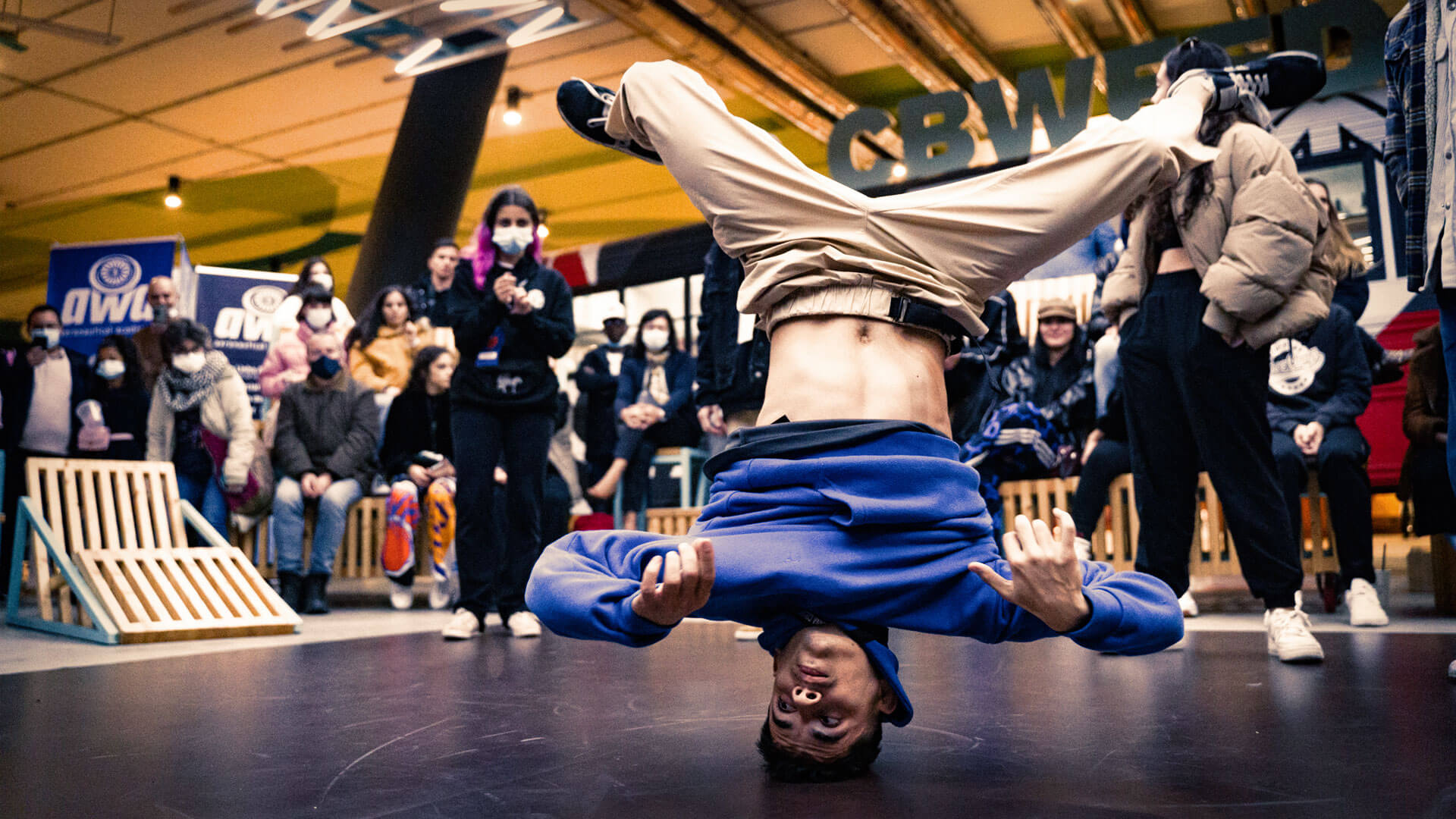Casa do Impacto talked to Rita Martins and Raquel Oliveira, responsible for Kickoff, one of the projects that end this month’s training period for the Rise for Impact acceleration program.
We enter the final stretch of the Rise for Impact training period and invite the 10 participants to take a look back at their journey so far. Then, on December 16th, we will meet the three finalists of the program who will enter the incubation phase, which will lead them to the final prize, in an event not to be missed!
Grab your free ticket here.
In today’s interview, you get to know Kickoff, a cultural experimentation program for young people that came to combat the weak relationship between Portuguese society and culture. Through this program, young participants can develop artistic, cultural, and social skills, making them more aware citizens and better prepared for life’s challenges.
This project started the Rise for Impact program with the name First Steps. However, over the weeks of acceleration and through the learning acquired in it, its designation as Kickoff was understood, making it clear that these were two independent projects interconnected by the same promoting organization, UNDA.
How did the idea of creating Kickoff come about?
The Kickoff youth training program arose through feedback built over 10 years of First Steps Art Festival implementation. As a result, we had the opportunity to interact with several young people and understand the evolution of transversal skills that they manifest when exposed to consecutive participation in artistic experimentation activities. This experience led us to identify a gap regarding the lack of social and emotional skills in young people today, which directly impact their human, social, academic and professional potential. All evidence by the recent OECD study designated “Survey on Social and Emotional Skills (SSES); Sintra, (Portugal)”.
Thus, we realized that through our experience with artistic activities and proximity to young people, we could develop a program that, in parallel with artistic technical training, could develop essential skills for their future, such as creativity, communication, teamwork, project management and problem-solving.
How did you find out about Rise for Impact? What prompted you to participate?
We learned about Rise For Impact through the Transformers Movement, former program participants. What drove us forward was the possibility of validating the feasibility of our program and improving the business model with the support of experienced mentors, as we believe that through this, we will make a difference in the young people of today, who will be our leaders of tomorrow.
What is it, how does it work, and who is the Kickoff for?
The Kickoff youth empowerment program is aimed at young people attending the third cycle and secondary education, and it will be implemented in schools across the country. This program uses a unique methodology, lasting 3 months, renewable, and divided into 3 stages: artistic training, identification of a community problem and implementation of the creative solution. This methodology, applied by professional trainers in the artistic field, can reinforce transversal skills such as creativity, communication, teamwork, project management, and problem-solving.
What stage are you in now? What is the feedback from the young participants and mentors in the program?
Kickoff is ready to move into the implementation phase of the pilot project, so we don’t have direct feedback from the participants yet. However, as for the program’s future mentors and trainers and some potential clients (municipalities and school leaders) and partners already identified, we have very positive feedback that contributed to validating the defined methodology. Overall, the feedback obtained recognized the problem and the need to provide youth empowerment solutions. Furthermore, it was also possible for us to validate the possibility that potential customers and partners might be interested in investing in the program, considering the presented implementation costs.

“Kickoff could be a capacitation tool absorbed by the national education system, which is currently weak in the development of these skills, particularly from the third cycle onwards, since it focuses heavily on the development of technical skills”.
How has your Rise for Impact experience been during the 3 months of training? Something you can highlight?
As positive points, we highlight the fact that Rise for Impact enables practical training and several moments of individual mentoring, leading to faster and more focused development of the project. At the same time, it provided the motivation, commitment and confidence necessary for the team to persist in the continuous improvement and strengthening of the business model. The contacts that Rise for Impact made possible with banks, potential funders, consultants, and managers of successful impact projects are also worth mentioning.
This program allows us to dream bigger and, essentially, to acquire tools that enable us to move from dream and desire to practice and reality.
What would it mean for you to win Rise for Impact?
Winning Rise for Impact will allow us to move into the testing phase of this program to generate a report measuring the tested impact and thus facilitate the first sales of the program.
How does the project contribute to achieving the Sustainable Development Goals of the UN 2030 Agenda?
The project essentially contributes to the fulfilment of 4 Sustainable Development Goals Agenda 2030 of the UN:
SDG 4: Quality Education – unlike regular education, which is expository mainly and does not allow young people to develop transversal skills essential for their active role in society, we will opt for a theoretical-practical methodology ( learning by doing ) that it will allow them to develop soft skills that are crucial for their academic and professional success;
SDG 8: Decent Work and Economic Growth – by strengthening the social, self-management and decision-making skills of today’s young people, we are contributing to the training of more competent professionals, with critical thinking and more tools to explore their potential – gaps that have been identified by vocational education;
SDG 10: Reduction of Inequalities – unlike most extracurricular activities for the development of soft skills, this is a free access program for all students who wish to take advantage of it;
SDG 11: Sustainable Cities and Communities – in the methodology used in the Kickoff program, the 2nd and 3rd stage aims to develop stimuli for social and community empathy and social entrepreneurship.
Our objective is that young people can find a role in their communities and respond to collective challenges to build a more united, empathetic and sustainable society.
How do you see Kickoff in 2025?
We believe that Kickoff can be a capacitation tool absorbed by the national education system, which is currently weak in developing these skills, particularly from the third cycle onwards, because it focuses heavily on developing technical skills.
Find out all about UNDA, the Kickoff promoting organization, here. Stay tuned! This month we will get to know the 10 projects that participate in the acceleration, and that will make their pitch at the Demoday that will take place on December 16th at Casa do Impacto. Admission is free, but prior registration is required here.
Do you want to be up to date with all the news from Casa do Impacto, including our monthly program of events? Subscribe to our newsletter and follow us on social media – Facebook, Instagram,Twitter and Linkedin.

